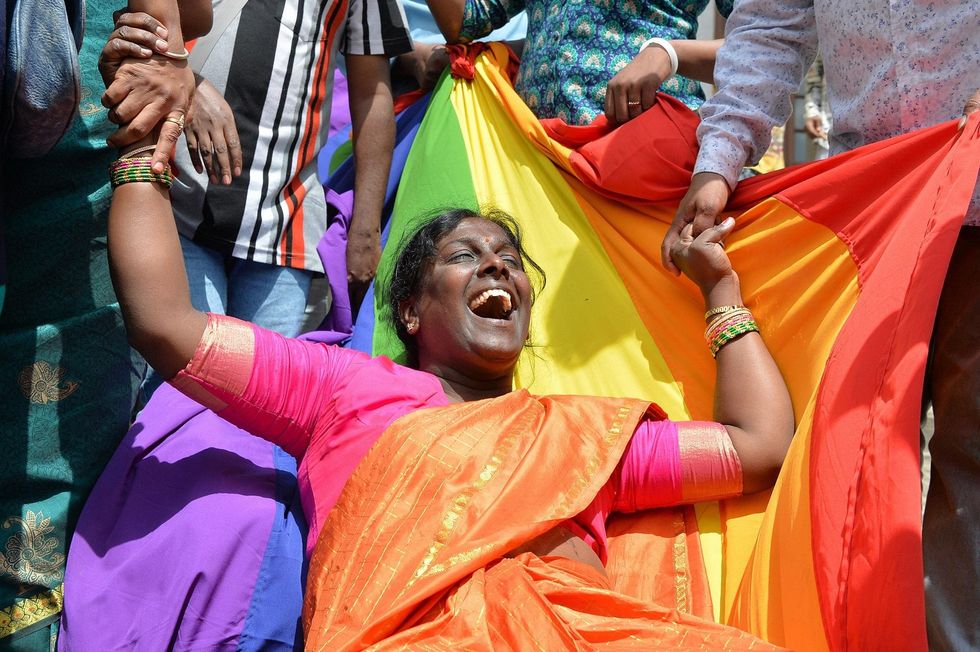
India's high court decriminalized homosexual intercourse on Thursday, overturning a ban that had been reinstated five years ago. (MANJUNATH KIRAN/AFP/Getty Images)

India's Supreme Court decriminalized homosexual intercourse on Thursday, but it isn't the first time the country has tackled the issue.
The high court's five jurists unanimously determined that gay sex does not violate the country's constitution and ruled to scrap a provision outlawing the practice. They found part of Section 377 of the Indian Penal Code — which prohibited "carnal intercourse against the order of nature with any man, woman or animal" — to be unlawful.
In its judgment, the court wrote, "Consensual sex between adults in a private space, which is not harmful to women or children, cannot be denied as it is a matter of individual choice. Section 377 results in discrimination and is violative of constitutional principles," according to the Times of India.
Chief Justice Dipak Misra further explained, "Respect for individual choice is the essence of liberty. This freedom can only be fulfilled when each of us realize that the LGBT community possesses equal rights."
The court's decision also stated, "Even though Section 377 is facially neutral, it has been misused by subjecting members of the LGBT community to hostile discrimination, making them vulnerable and living in fear of the ever-present threat of prosecution on account of their sexual orientation."
Reuters reported that Thursday's verdict could face legal challenges, as was the case when Section 377 was first defanged in 2009 by Delhi's High Court. In 2013, the ban was reinstated following a suit led by astrologer Suresh Kumar Kaushal, who argued at the time that allowing homosexual relationships "compromises national defense since soldiers will start having sex with each other."
Swami Chakrapani, president of All India Hindu Mahasabha, a conservative group, slammed Thursday's decision, telling the New York Times, "It's shameful. We are giving credibility and legitimacy to mentally sick people."
Section 377 was imposed in 1861 during British colonial rule, and carried a punishment of up to 10 years in prison. It is still illegal in India for same-sex couples to marry, adopt a child, or inherit property, according to the Los Angeles Times.
The judges' decision keeps certain provisions of Section 377 in place, stating that the law would "continue to govern nonconsensual sexual acts against adults, all acts of carnal intercourse against minors, and acts of beastiality."